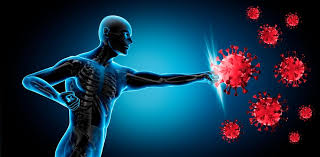
While removing immune-disrupting elements is critical, it’s just one side of the equation. True immune resilience comes from adding in the right inputs—the nutrients, habits, and rhythms that keep your defense system primed, responsive, and ready.
1. Add Quality Sleep
Sleep is not passive—it’s when the immune system reorganizes, repairs, and recalibrates. Deep, uninterrupted sleep increases natural killer (NK) cell activity, supports T-cell formation, and promotes antibody production.
Add: a consistent sleep routine, blackout curtains, magnesium glycinate or L-theanine, and a pre-bed wind-down routine without screens or stimulation.
2. Add Foundational Nutrition
Micronutrients like zinc, selenium, iron, vitamin C, vitamin D, and omega-3s are essential to immune function. Deficiency in any of them compromises immune response. A nutrient-dense, anti-inflammatory diet strengthens both the innate and adaptive immune arms.
Add: pastured meats, wild-caught fish, colorful vegetables, fermented foods, bone broth, and smart supplementation when necessary.
3. Add Movement and Breathwork
Consistent physical activity enhances lymph circulation, increases immune cell mobilization, and improves metabolic health. Breath-driven movement (such as nasal breathing during walks or mobility work) also supports vagal tone—an often overlooked regulator of immune resilience.
Add: daily walking, mobility flows, strength training 2–3 times a week, and breath-focused recovery sessions.
4. Add Sunlight and Circadian Support
Natural light exposure helps regulate sleep-wake cycles and vitamin D synthesis—both directly impacting immune readiness. Vitamin D is vital for activating T-cells and reducing the risk of infection and autoimmunity.
Add: 10–20 minutes of sunlight exposure in the morning, screen limits after sunset, and daylight-based rhythms in your work and rest schedule.
5. Add Nervous System Regulation
The immune system is tightly linked with the nervous system. Chronic sympathetic dominance (fight-or-flight) can impair immune communication. Parasympathetic practices—like prayer, stillness, or slow breathing—restore internal safety and allow immune intelligence to function.
Add: daily prayer, diaphragmatic breathing, gratitude journaling, Scripture reading, and time spent in nature.
6. Add Strategic Cold and Heat Exposure
Saunas and cold immersion, when applied intentionally, create hormetic stress—brief, beneficial challenges that make the immune system stronger. Heat therapy can increase white blood cell production, while cold exposure activates the vagus nerve and anti-inflammatory cytokines.
Add: sauna 2–3 times per week, cold showers or ice baths, and contrast therapy if available.
7. Add Relational and Spiritual Health
Isolation, bitterness, and unforgiveness erode health over time. Connection, laughter, and strong purpose are powerful immunoregulators. Studies show that people with meaningful relationships and spiritual practices have more robust immune responses.
Add: regular fellowship, service to others, forgiveness, and a spiritual practice that anchors your worldview.
Summary
To guard your immune system, think addition—not just subtraction. The right inputs create the environment your body needs to adapt, defend, and thrive. Immune resilience is less about quick fixes and more about daily choices that align with creation-based design.
Citations
- Sleep and Immune Function
- Besedovsky, L., Lange, T., & Born, J. (2012). Sleep and immune function. Pflügers Archiv – European Journal of Physiology, 463(1), 121–137.
https://doi.org/10.1007/s00424-011-1044-0
- Besedovsky, L., Lange, T., & Born, J. (2012). Sleep and immune function. Pflügers Archiv – European Journal of Physiology, 463(1), 121–137.
- Micronutrients and Immune Health
- Gombart, A. F., Pierre, A., & Maggini, S. (2020). A review of micronutrients and the immune system. Nutrients, 12(1), 236.
https://doi.org/10.3390/nu12010236
- Gombart, A. F., Pierre, A., & Maggini, S. (2020). A review of micronutrients and the immune system. Nutrients, 12(1), 236.
- Exercise and Immune Response
- Nieman, D. C., & Wentz, L. M. (2019). The compelling link between physical activity and the body’s defense system. Journal of Sport and Health Science, 8(3), 201–217.
https://doi.org/10.1016/j.jshs.2018.09.009
- Nieman, D. C., & Wentz, L. M. (2019). The compelling link between physical activity and the body’s defense system. Journal of Sport and Health Science, 8(3), 201–217.
- Sunlight, Vitamin D, and Immunity
- Aranow, C. (2011). Vitamin D and the immune system. Journal of Investigative Medicine, 59(6), 881–886.
https://doi.org/10.2310/JIM.0b013e31821b8755
- Aranow, C. (2011). Vitamin D and the immune system. Journal of Investigative Medicine, 59(6), 881–886.
- Cold and Heat Exposure for Immune Activation
- Rhind, S. G., Gannon, G. A., Shephard, R. J., & Shek, P. N. (2004). Effects of heat and exercise on leukocyte counts and neutrophil activation. Journal of Applied Physiology, 97(5), 2070–2075.
https://doi.org/10.1152/japplphysiol.00353.2004
- Rhind, S. G., Gannon, G. A., Shephard, R. J., & Shek, P. N. (2004). Effects of heat and exercise on leukocyte counts and neutrophil activation. Journal of Applied Physiology, 97(5), 2070–2075.
- Social Relationships and Immune Function
- Uchino, B. N., Cacioppo, J. T., & Kiecolt-Glaser, J. K. (1996). The relationship between social support and physiological processes. Psychological Bulletin, 119(3), 488–531.
https://doi.org/10.1037/0033-2909.119.3.488
- Uchino, B. N., Cacioppo, J. T., & Kiecolt-Glaser, J. K. (1996). The relationship between social support and physiological processes. Psychological Bulletin, 119(3), 488–531.
Leave a Reply